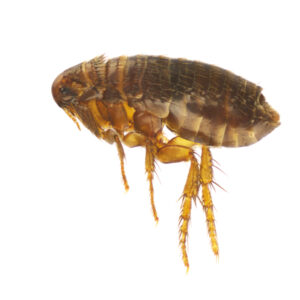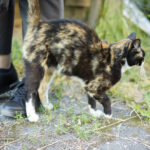
Need Help? Call Us On 0161 776 9832 For Expert Pest Control Advice On How To Identify Pest Infestations And Help Solve Your Pest Problem.
Youngs Pest Control Flea Treatments in Denshaw
At Youngs Pest Control, we understand the difficulty of dealing with flea infestations. That's why we're here to help. We
We at Youngs Pest Control are a local family-run business that strives to keep properties free of fleas for you and your family. Our technicians are experts in the field, so if fleas have taken over, don't hesitate to give us a call.
Some of the services we offer include :
- Flea eradication
- Inspections
- Treatments
- Follow up services
- Prevention Tips
Fleas are tiny parasitic insects that feed on the blood of their hosts, which can be your pets or even you. These pesky critters not only cause discomfort but also spread diseases and infections. As pest control specialists in Denshaw, we understand the behaviour of fleas and provide effective treatment options for our clients.
At Youngs Pest Control, we specialise in flea treatments that target fleas at all three stages of their life. Our team of experts uses advanced techniques to identify the source and implement customised solutions based on those circumstances. We believe in using professional methods that are safe for both humans and pets while effectively eliminating fleas from homes and businesses.
What is the method of flea transmission?
Fleas are some of the most notorious pests that can be found in homes and businesses. They are wingless, blood-sucking parasites that feed on animals and humans alike. Flea infestations can spread rapidly due to their rapid reproduction cycle. Fleas have several methods of spreading from one host or environment to another.
Direct contact with infested pets is a common way that fleas can move into new areas. Fleas will also jump onto clothing and personal items such as bags, shoes, and coats, allowing them to hitchhike their way around town.
Wild animals like, squirrels and rodents often carry fleas on their bodies, too and once they come close to your residence, they can spread them.
If you are wondering if you need flea control, look out for these signs
Fleas are blood-sucking parasites that feed on warm-blooded animals, including cats and dogs. These pests can spread rapidly from one host to another through contact with infected animals or contaminated environments such as carpets, bedding, and furniture. Fleas also have the ability to survive without a host for several months, making it challenging to eliminate them entirely.
If you notice your pets excessively scratching themselves or small bites on their skin, these could be signs of flea infestation. Other common signs include black droppings on pet beds or floors and seeing fleas hopping around your home. Another common indicator is if you notice bite marks on your body.
What are the reasons for treating a flea infestation?
Firstly, fleas are known carriers of various diseases, such as typhus and tapeworms. These pests bite their hosts in order to feed on blood, which can lead to skin irritations, allergic reactions, and even anaemia if left untreated. Moreover, flea bites can become infected if scratched excessively by pets or humans seeking relief from itching. In severe cases, this can result in abscesses or secondary infections requiring medical attention.
Secondly, flea treatments are crucial not only for eradicating current infestations but also for preventing future ones from occurring. As these pests reproduce quickly and easily spread throughout households, it's essential to take action immediately upon detection of an infestation. Failure to do so could result in costly damages as well as continued exposure to potential health risks.
Lastly, proper flea treatment requires professional expertise and knowledge about the different types of cat flea and dog flea species commonly found in residential areas. DIY solutions may prove ineffective or even harmful, depending on the situation at hand. Our Professional pest control specialists from Denshaw have access to powerful yet safe eradication techniques that ensure the complete removal of fleas while minimising the risk of harm to pets and humans.
Effective flea treatment is imperative for both pet welfare and human health reasons; prevention against future outbreaks cannot be ignored nor underestimated when considering the importance of controlling the spread of fleas.
What should I do after treatment has been done in my home?
After a flea treatment is conducted by our technician, there are still a few things left to do on your side, and these are:
- Refrain from cleaning the treated area for at least two weeks
- Avoid washing any treated area, such as carpets or upholstery
- Practice good hygiene
- Use disinfectant on floors when cleaning
- Vacuum regularly
- Clean your pet's toys and bedding regularly

At Youngs Pest Control in Denshaw, we pride ourselves on using effective yet safe methods tailored specifically for each individual situation. Our trained technicians have extensive knowledge of flea biology and behaviour, which allows them to provide targeted treatments that address every stage of an infestation.
Investing in professional flea control services is critical if you want peace of mind knowing that your home is free from these troublesome pests. Don't let fleas take over your life - contact us today!
We also service Neighboring areas like Oldham and Delph.
OL3
